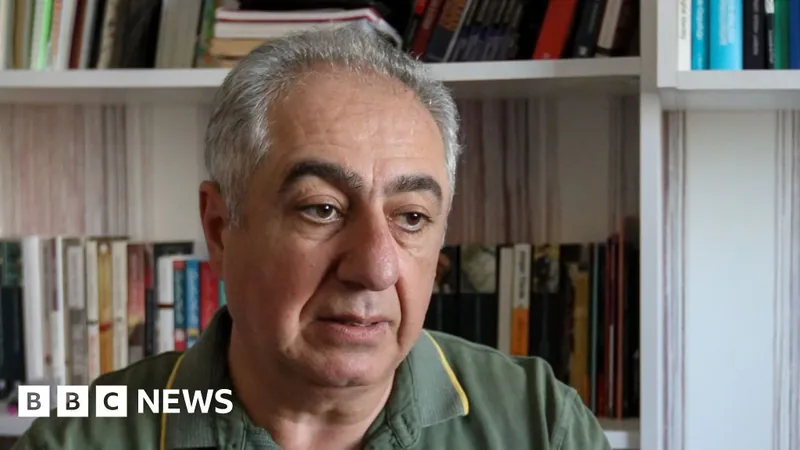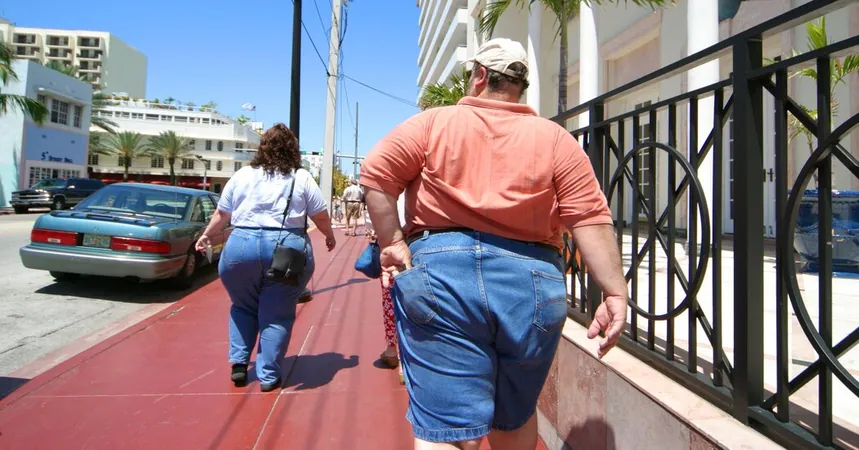
Human Rights Groups Sound Alarm Over Azerbaijan's Crackdown Ahead of COP29
2024-11-15
Author: Kai
Human Rights Groups Sound Alarm Over Azerbaijan's Crackdown Ahead of COP29
As world leaders convene in Azerbaijan for COP29, human rights organizations are raising serious concerns about the Azerbaijani government's aggressive actions against climate activists and political dissenters. The country, which is hosting the climate summit, has been accused of detaining numerous environmental defenders as it seeks to suppress opposition to its policies.
This troubling trend marks the third consecutive year that a nation hosting COP has faced allegations of repressing civil liberties, highlighting an alarming pattern that activist groups are urging the United Nations to address. The Climate Action Network, representing nearly 2,000 climate organizations, emphasized the necessity of safeguarding civil society's rights in order to effectively combat climate change.
Despite these allegations, the Azerbaijani government has categorically denied any wrongdoing, asserting that no political prisoners exist within its borders. However, international observers claim that the situation has intensified since Azerbaijan was awarded the COP29 hosting rights last November. Natalia Nozadze of Amnesty International pointed to a surge in arrests and crackdowns on dissent, particularly targeting individuals perceived as critical of the regime.
Data from The Union "For Freedom of Political Prisoners in Azerbaijan" reveals a concerning reality: the number of political prisoners, which includes journalists and environmental activists, has surpassed 300 for the first time in over two decades.
One prominent case is that of Gubad Ibadoglu, a professor at the London School of Economics, who was detained on dubious fraud charges during the summer of 2023 after criticising government policies related to the oil and gas industry. Still under house arrest, Ibadoglu claims his health is deteriorating and has appealed for assistance from the UK Prime Minister.
Another troubling individual case is that of Anar Mammadli, who faced smuggling charges shortly after co-founding an organization advocating for adherence to the Paris Agreement. His arrest came as Azerbaijan announced plans to boost natural gas production, contrary to global climate commitments.
Amidst these developments, civil society’s role at COP29 is significantly undermined, as highlighted by Mammadli's friend, Bashir Suleymanli. He lamented that essential groups meant to hold governments accountable are being sidelined.
The historical context further complicates Azerbaijan’s credibility as a host; previous summits in the United Arab Emirates and Egypt were similarly criticized for their human rights records. Emin Huseynov, an Azerbaijani journalist and environmental advocate, condemned the decision to allow Azerbaijan to host, suggesting it serves only to enhance the personal image of President Ilham Aliyev amid a backdrop of climate inaction.
As COP29 unfolds, questions regarding the selection process for host nations loom large. Andreas Sieber from the climate group 350.org called for stricter criteria to exclude nations known for human rights abuses, urging the UN to enforce measures that ensure a genuine platform for civil society.
In an effort to address these concerns, the UNFCCC noted that, for the first time, this year’s Host Country Agreement includes provisions to protect human rights. Yet, Tasneem Essop, executive director of Climate Action Network, pointed out inherent limitations in what the UN can enforce upon host countries regarding their human rights practices.
Recent discussions among global leaders have also drawn criticism, particularly regarding the UK's quiet stance toward Azerbaijan's human rights issues in contrast to its previous criticisms of Egypt during COP27. During a meeting at COP29, UK Prime Minister Keir Starmer refrained from addressing human rights concerns or specific cases like Ibadoglu’s.
With activists emphasizing the crucial role of civil society in advocating for climate change justice, the stakes are higher than ever. The momentum for establishing a loss and damage fund to support vulnerable nations is evidence of this, underscoring the indispensable contributions activists make in holding governments accountable.
As tensions rise and calls for justice echo louder, COP29 faces a critical crossroads: whether to uphold its foundational values of inclusion and accountability or to allow oppressive regimes to manipulate these vital discussions for their own benefit.



 Brasil (PT)
Brasil (PT)
 Canada (EN)
Canada (EN)
 Chile (ES)
Chile (ES)
 España (ES)
España (ES)
 France (FR)
France (FR)
 Hong Kong (EN)
Hong Kong (EN)
 Italia (IT)
Italia (IT)
 日本 (JA)
日本 (JA)
 Magyarország (HU)
Magyarország (HU)
 Norge (NO)
Norge (NO)
 Polska (PL)
Polska (PL)
 Schweiz (DE)
Schweiz (DE)
 Singapore (EN)
Singapore (EN)
 Sverige (SV)
Sverige (SV)
 Suomi (FI)
Suomi (FI)
 Türkiye (TR)
Türkiye (TR)